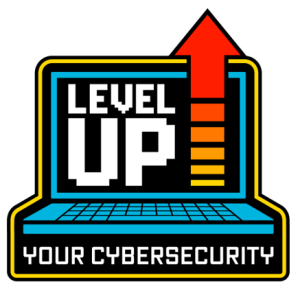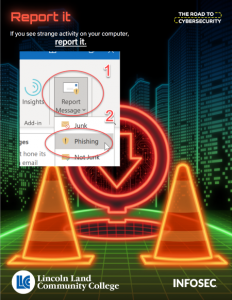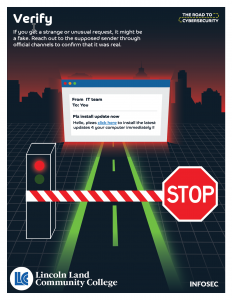Geofencing blocks access to LLCC accounts outside of the United States. If you are traveling outside of the country and will need access to your LLCC account, please let the help desk know to have geofencing deactivated for the duration of your travel.
Most account attacks come from outside of the country. Geofencing is a good measure to block those attacks and reduce the number of compromise accounts.
IT Help Desk
helpme@llcc.edu
https://it.llcc.edu
217-786-2555

 Welcome to Level 4. No matter what you call it, multi-factor authentication, or MFA, is a security measure that requires anyone logging into an account to navigate a two-step process to prove their identity. By adding one more simple step when logging into an account, multi-factor authentication greatly increases the security of your account.
Welcome to Level 4. No matter what you call it, multi-factor authentication, or MFA, is a security measure that requires anyone logging into an account to navigate a two-step process to prove their identity. By adding one more simple step when logging into an account, multi-factor authentication greatly increases the security of your account. This may be the last week of our campaign, but The Road to Cybersecurity never truly ends. It takes small precautions from each of us, every day, to keep ourselves and the college secure.
This may be the last week of our campaign, but The Road to Cybersecurity never truly ends. It takes small precautions from each of us, every day, to keep ourselves and the college secure.